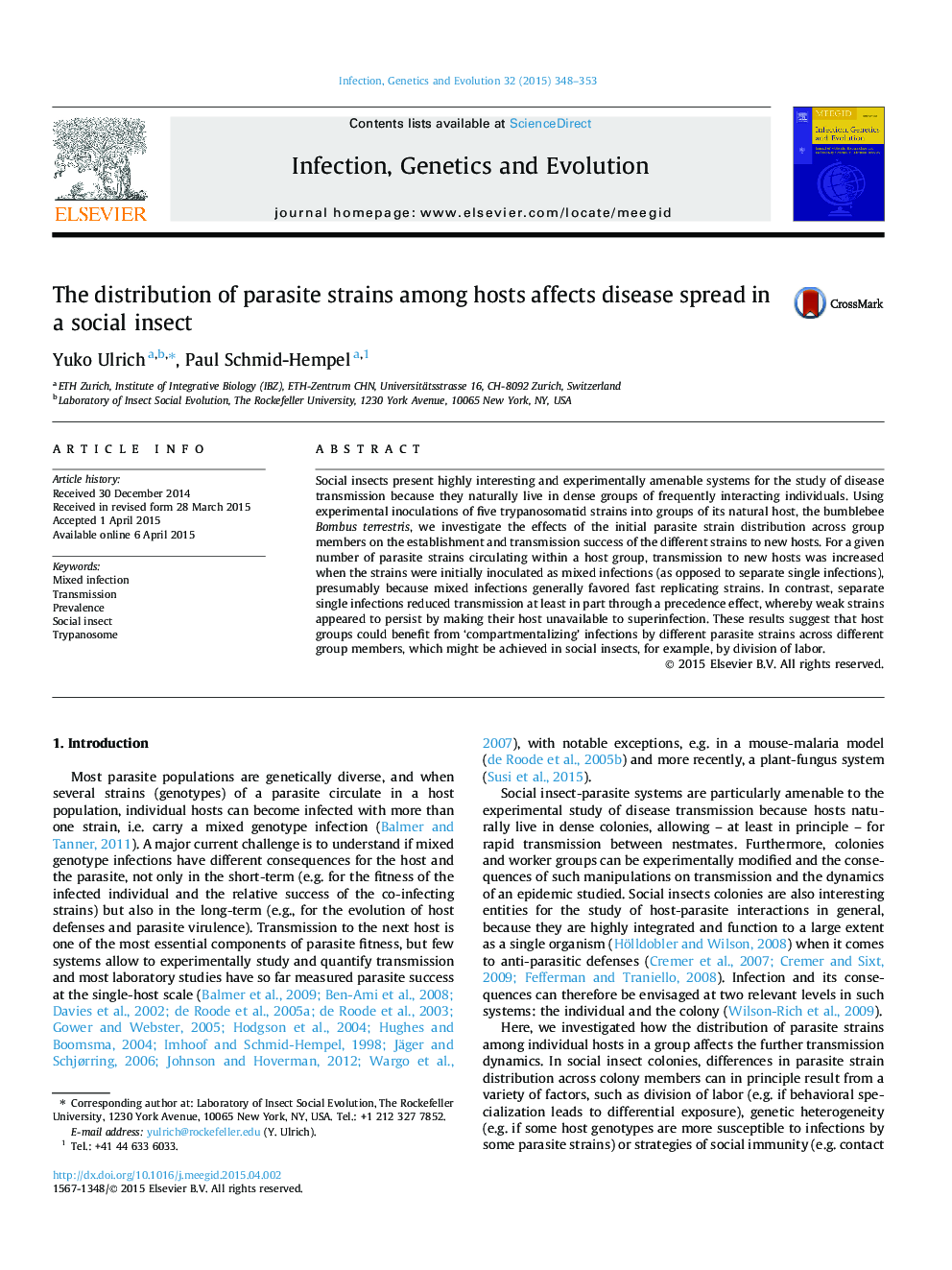| Article ID | Journal | Published Year | Pages | File Type |
|---|---|---|---|---|
| 5909216 | Infection, Genetics and Evolution | 2015 | 6 Pages |
Abstract
Social insects present highly interesting and experimentally amenable systems for the study of disease transmission because they naturally live in dense groups of frequently interacting individuals. Using experimental inoculations of five trypanosomatid strains into groups of its natural host, the bumblebee Bombus terrestris, we investigate the effects of the initial parasite strain distribution across group members on the establishment and transmission success of the different strains to new hosts. For a given number of parasite strains circulating within a host group, transmission to new hosts was increased when the strains were initially inoculated as mixed infections (as opposed to separate single infections), presumably because mixed infections generally favored fast replicating strains. In contrast, separate single infections reduced transmission at least in part through a precedence effect, whereby weak strains appeared to persist by making their host unavailable to superinfection. These results suggest that host groups could benefit from 'compartmentalizing' infections by different parasite strains across different group members, which might be achieved in social insects, for example, by division of labor.
Related Topics
Life Sciences
Agricultural and Biological Sciences
Ecology, Evolution, Behavior and Systematics
Authors
Yuko Ulrich, Paul Schmid-Hempel,
